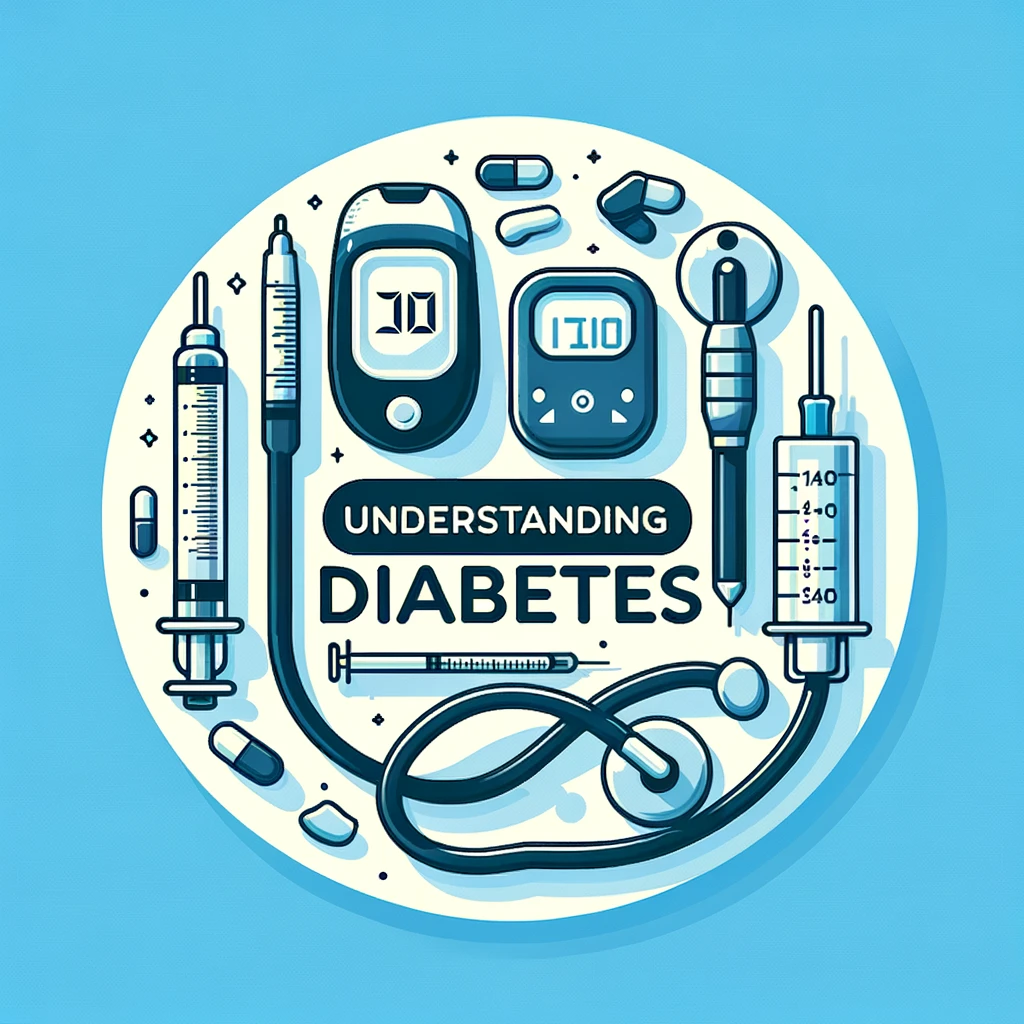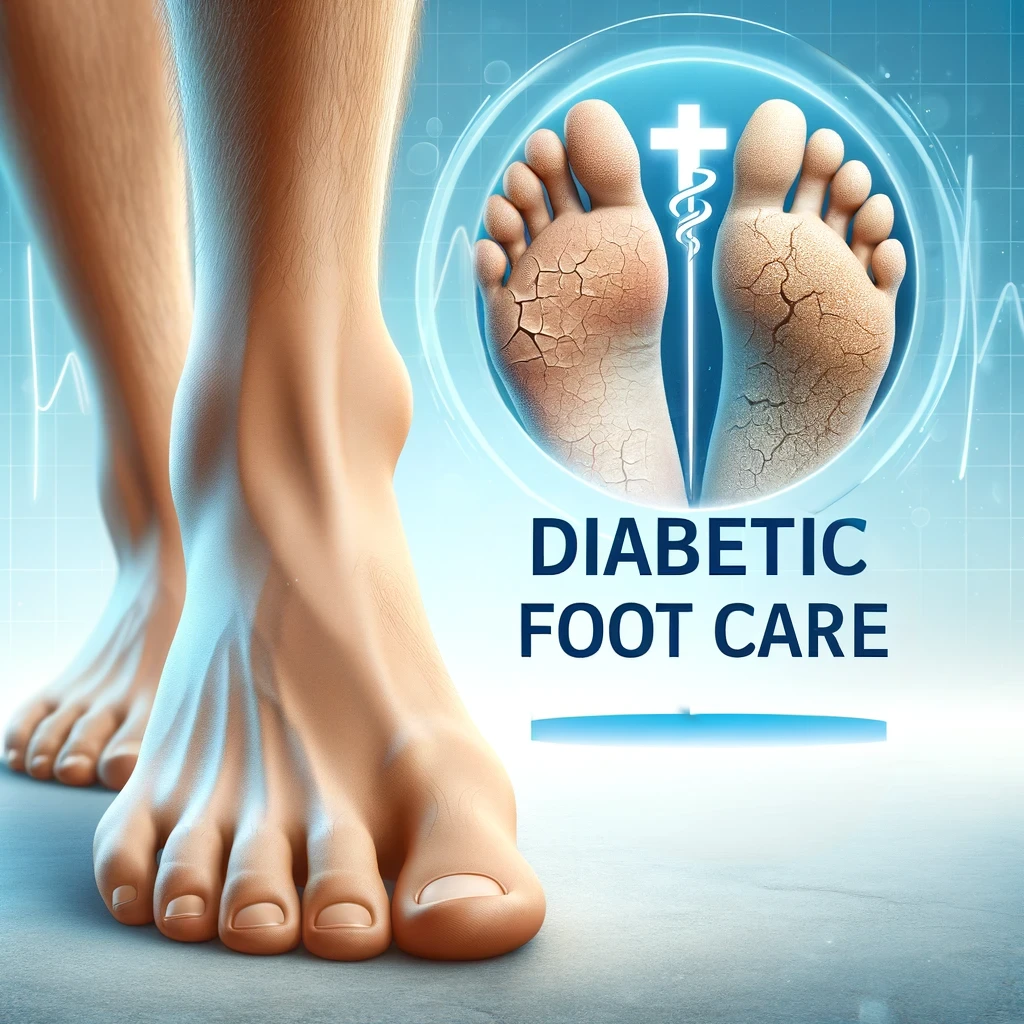
Diabetes is a chronic health condition that affects how your body turns food into energy. When you eat, your body breaks down most of the food into sugar (glucose) and releases it into your bloodstream. When your blood sugar goes up, it signals your pancreas to release insulin. Insulin acts like a key to let the blood sugar into your body’s cells for use as energy. If you have diabetes, your body either doesn’t make enough insulin or can’t use the insulin it makes as well as it should. When there isn’t enough insulin or cells stop responding to insulin, too much blood sugar stays in your bloodstream. Over time, that can cause serious health problems, such as heart disease, vision loss and kidney disease. Understanding the types and causes of diabetes is crucial for effective management and prevention.
Types of Diabetes
Type 1 Diabetes
Type 1 diabetes is an autoimmune condition where the body attacks and destroys the insulin-producing beta cells in the pancreas. This type is usually diagnosed in children, teens and young adults, but it can develop at any age.
Causes
The exact cause of type 1 diabetes is unknown. It is believed to involve a combination of genetic predisposition and environmental factors, such as exposure to certain viruses.
Type 2 Diabetes
Type 2 diabetes is a chronic condition that affects the way the body processes blood sugar (glucose). In this type, the body either resists the effects of insulin or doesn’t produce enough insulin to maintain normal glucose levels.
Causes
Type 2 diabetes is primarily caused by lifestyle factors and genetics. Being overweight, inactive and eating a poor diet are major contributors.
Gestational Diabetes
Gestational diabetes is a type of diabetes that can develop during pregnancy in women who don’t already have diabetes.
Causes
Hormonal changes during pregnancy can cause the body to become less responsive to insulin. Risk factors include obesity and a history of gestational diabetes in previous pregnancies.
Other Specific Types of Diabetes
Monogenic Diabetes
This is a rare form of diabetes caused by a single gene mutation. It often runs in families.
Cystic Fibrosis-Related Diabetes
Cystic fibrosis can damage the pancreas and cause diabetes.
Drug or Chemical-Induced Diabetes
Certain medications, such as glucocorticoids, can induce diabetes.
Symptoms and Signs of Diabetes
Common Symptoms
- Increased thirst and urination
- Extreme fatigue
- Blurred vision
- Slow healing of cuts and bruises
Uncommon Symptoms
- Darkened skin in certain areas, usually in the armpits and neck (acanthosis nigricans)
- Unintended weight loss
Symptoms by Type of Diabetes
- Type 1: Rapid onset of severe symptoms
- Type 2: Gradual onset, often going unnoticed for years
- Gestational: Symptoms may be mild and similar to those of normal pregnancy
Causes and Risk Factors
Genetic Factors
Family history of diabetes can significantly increase the risk.
Environmental Factors
Exposure to viruses and toxins may trigger the autoimmune response in type 1 diabetes.
Lifestyle Factors
A sedentary lifestyle, poor diet and obesity are major risk factors for type 2 diabetes.
Risk Factors Specific to Each Type of Diabetes
- Type 1: Family history, genetics, geography
- Type 2: Age, weight, inactivity, family history
- Gestational: Overweight, age, previous gestational diabetes
Diagnosis and Tests
Blood Tests
Fasting Blood Glucose Test
Measures blood sugar after an overnight fast.
A1C Test
Provides an average blood sugar level over the past 2-3 months.
Oral Glucose Tolerance Test
Measures blood sugar before and after drinking a sweet drink.
Urine Tests
Checks for the presence of glucose and ketones.
Continuous Glucose Monitoring (CGM)
Provides real-time readings of blood sugar levels.
Diagnosis Criteria for Different Types of Diabetes
- Type 1: High blood sugar, presence of autoantibodies
- Type 2: High blood sugar, insulin resistance
- Gestational: High blood sugar during pregnancy
Treatment Options
Medications
Insulin Therapy
Essential for type 1 diabetes, sometimes necessary for type 2.
Oral Medications
Various drugs help manage type 2 diabetes by increasing insulin production or reducing insulin resistance.
Lifestyle Changes
Diet
Eating a balanced diet rich in whole grains, fruits, vegetables and lean proteins.
Exercise
Regular physical activity helps control blood sugar levels.
Alternative Therapies
Some people find benefits in supplements and herbs, though they should always consult with a healthcare provider.
Monitoring and Managing Blood Sugar Levels
Regular monitoring is crucial for effective diabetes management.
Preventive Measures
Healthy Eating
A balanced diet can prevent type 2 diabetes.
Regular Physical Activity
Exercise helps maintain healthy blood sugar levels.
Weight Management
Maintaining a healthy weight is key to preventing type 2 diabetes.
Regular Check-Ups
Routine health check-ups can catch prediabetes early.
Conclusion
Understanding the types and causes of diabetes is essential for effective management and prevention. With proper education, lifestyle changes and medical care, individuals can lead healthy lives despite their diagnosis. If you or a loved one are affected by diabetes, seek support from healthcare professionals and stay informed about the latest advancements in diabetes care.



